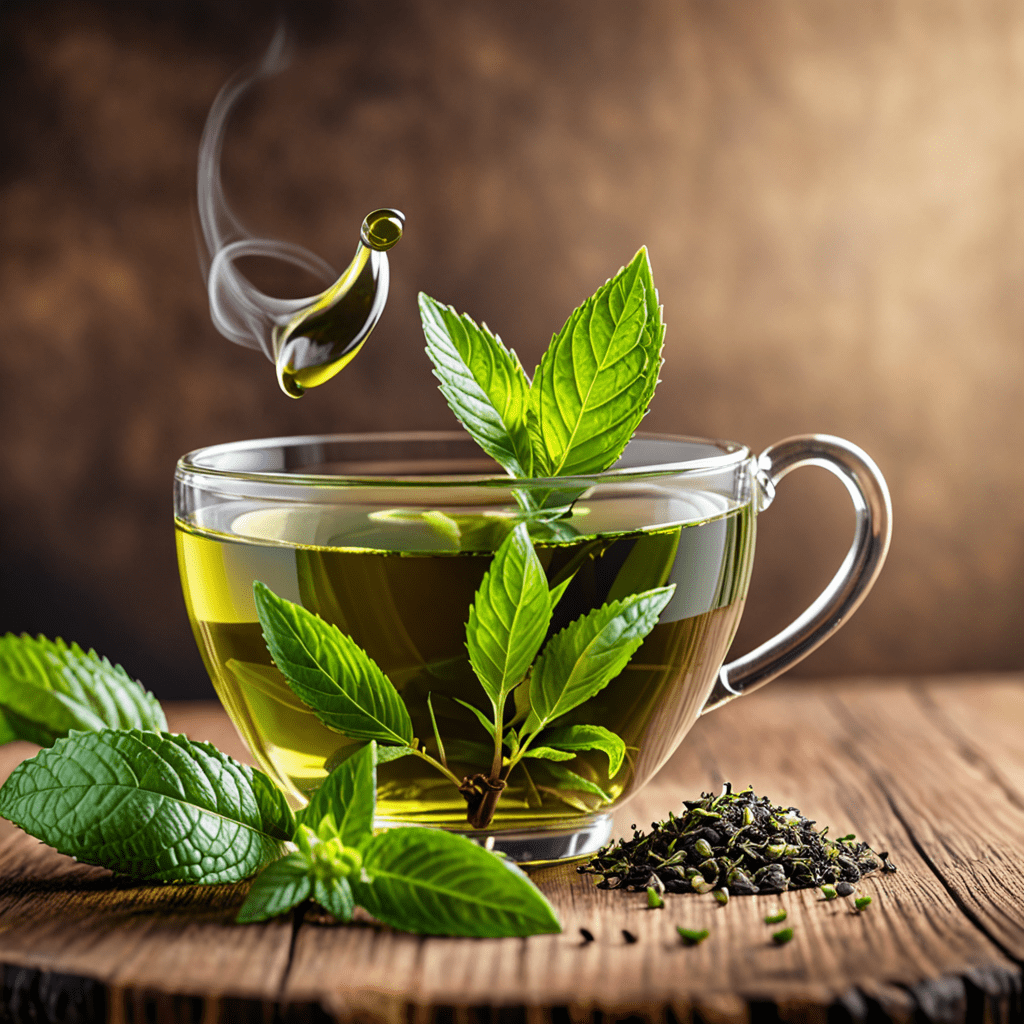Introduction
Tea and Wellness: Balancing Body and Mind the Indian Way
The Health Benefits of Tea
Tea and Ayurveda
Tea Rituals and Practices
Throughout history, tea has held a significant place in the cultural and wellness practices of India. From its humble origins as a medicinal beverage to its evolution into a cherished social ritual, tea has played a vital role in shaping the country's health and well-being. In this article, we delve into the world of Indian tea and explore its remarkable journey from tradition to modern science, unraveling the secrets of its holistic approach to wellness.
Introduction
India, a land where vibrant traditions and ancient wisdom intertwine, has a long-standing love affair with tea. The aromatic brew has been an integral part of Indian culture for centuries, deeply woven into the fabric of everyday life. From the bustling streets of Mumbai to the tranquil tea gardens of Darjeeling, the aroma of freshly brewed tea permeates the air, signaling a moment of pause, connection, and rejuvenation.
While the exact origins of tea in India remain shrouded in mystery, historical records suggest its presence as early as the 7th century. Initially consumed for its medicinal properties, tea gradually gained popularity as a refreshing beverage, becoming an indispensable part of Indian households. Today, India stands as one of the world's largest tea producers and consumers, with tea plantations flourishing across the diverse landscape, from the rolling hills of Assam to the misty slopes of Munnar.
The significance of tea extends far beyond its role as a mere beverage. In Indian culture, tea holds a profound meaning, symbolizing hospitality, warmth, and a sense of community. Sharing a cup of chai, as it is fondly called, transcends social barriers, fostering bonds and creating a space for meaningful conversations.
The Health Benefits of Tea
The health benefits of tea have been recognized for centuries, with traditional Indian medicine, Ayurveda, extolling its virtues for promoting physical and mental well-being. Modern scientific research has further validated these claims, shedding light on the myriad ways tea can contribute to a healthy lifestyle.
India boasts a rich diversity of teas, each with its unique flavor profile and potential health benefits. Black tea, the most popular variety, is known for its invigorating properties, thanks to its caffeine content. Green tea, on the other hand, is revered for its high concentration of antioxidants, which protect the body against cell damage. Herbal teas, crafted from a variety of plants and spices, offer a plethora of therapeutic benefits, ranging from aiding digestion to calming the mind.
Black tea, a staple in many Indian households, has been linked to improved cardiovascular health, reduced risk of stroke, and better blood sugar control. Its robust flavor and energizing effect make it an ideal morning beverage, helping to kickstart the day with a boost of alertness.
Green tea, with its delicate aroma and subtle sweetness, has gained immense popularity worldwide for its antioxidant prowess. Studies suggest that green tea consumption may contribute to reducing the risk of certain types of cancer, promoting brain health, and enhancing weight management.
Herbal teas, a treasure trove of natural remedies, have been used for centuries in India to address a wide range of ailments. Ginger tea, for instance, is a popular choice for alleviating nausea and aiding digestion, while chamomile tea is known for its calming and sleep-promoting properties. Turmeric tea, with its vibrant golden hue, offers potent anti-inflammatory benefits, while tulsi tea, revered for its sacred status in India, is believed to boost immunity and promote overall well-being.
Tea and Ayurveda
Ayurveda, the ancient Indian system of medicine, emphasizes the interconnectedness of mind, body, and spirit. Tea plays a significant role in Ayurvedic practices, as it is believed to restore balance within the body by harmonizing the three doshas: vata, pitta, and kapha.
Vata, characterized by air and space, governs movement and creativity. Pitta, associated with fire and water, controls metabolism and digestion. Kapha, composed of earth and water, governs structure and stability. When these doshas are in balance, overall health and well-being are achieved.
Ayurvedic practitioners recommend specific types of tea based on individual dosha types. For instance, vata-balancing teas include ginger, cinnamon, and cardamom, while pitta-balancing teas feature fennel, coriander, and rose petals. Kapha-balancing teas, on the other hand, incorporate black pepper, cloves, and licorice root.
Tea Rituals and Practices
In India, tea is more than just a beverage; it is a ritual, a way of life. The traditional chai preparation involves simmering black tea with milk, sugar, and a blend of aromatic spices like ginger, cardamom, and cloves. This aromatic concoction is then strained and served hot, often accompanied by a side of savory snacks.
The act of making and sharing chai is a deeply ingrained social tradition, creating a warm and inviting atmosphere for conversations and connections. It is a time to pause, reflect, and bond with loved ones over a shared cup of this comforting elixir.
The choice of tea and brewing method also plays a crucial role in maximizing its health benefits. Ayurveda recommends using freshly ground spices and brewing tea with unboiled water to preserve its essential nutrients. The addition of herbs and spices not only enhances the flavor but also adds a therapeutic dimension to the beverage.
Tea and Mental Wellness
Tea's impact extends beyond physical health, playing a significant role in promoting mental well-being. Research suggests that tea consumption can effectively reduce stress, anxiety, and depression, fostering a sense of calm and inner peace.
The calming effect of tea is attributed to its unique blend of compounds, including L-theanine, an amino acid with potent relaxation properties. L-theanine works synergistically with caffeine, reducing its jittery effects while promoting a state of focused alertness. This unique combination makes tea an ideal beverage for those seeking to de-stress and improve their mental clarity.
Studies have shown that regular tea consumption can significantly reduce cortisol levels, the primary stress hormone. This reduction in cortisol translates to lower anxiety levels, improved mood, and better sleep quality. Moreover, tea's antioxidant properties protect brain cells from damage, potentially reducing the risk of neurodegenerative diseases.
The act of brewing and drinking tea can also be a meditative experience, encouraging mindfulness and promoting relaxation. The rhythmic motions of preparing the tea, the gentle aroma filling the air, and the slow, deliberate sipping all contribute to a sense of calm and present-moment awareness.
Tea and Physical Wellness
Tea's contribution to physical wellness is multifaceted, encompassing a wide range of health benefits. From boosting immunity and aiding digestion to reducing inflammation and promoting weight management, tea offers a holistic approach to maintaining optimal physical health.
Tea's rich antioxidant content plays a crucial role in strengthening the immune system, protecting the body against infections and chronic diseases. Antioxidants neutralize harmful free radicals, reducing oxidative stress and promoting cellular health. Studies suggest that regular tea consumption can boost the immune response, making the body more resilient to various health challenges.
In addition to its immune-boosting properties, tea also aids digestion by stimulating the production of digestive enzymes. Black tea, in particular, is known for its ability to reduce bloating and discomfort after meals. Herbal teas, such as peppermint and ginger tea, are also effective in alleviating digestive issues like nausea and indigestion.
Inflammation, a natural response to injury or infection, can contribute to various chronic diseases if left unchecked. Tea's potent anti-inflammatory compounds help reduce inflammation throughout the body, alleviating pain, swelling, and other inflammatory symptoms.
Furthermore, tea's ability to regulate blood sugar levels and promote metabolism makes it a valuable tool for weight management. Green tea, in particular, has been shown to increase fat burning and reduce calorie intake, making it a popular choice for individuals seeking to lose weight or maintain a healthy body weight.
FAQ
Q: What is the best time to drink tea for optimal health benefits?
A: The best time to drink tea depends on the individual's goals and preferences. For those seeking an energy boost, morning tea is ideal. For relaxation and stress reduction, afternoon or evening tea is more suitable. It's generally recommended to avoid drinking tea close to bedtime, as caffeine can interfere with sleep.
Q: How much tea should I drink per day?
A: The recommended daily intake of tea varies depending on the type of tea and individual health factors. It's generally safe to consume 2-3 cups of tea per day. However, it's always advisable to consult with a healthcare professional for personalized guidance, especially if you have any underlying health conditions.
Q: What are some tips for brewing the perfect cup of tea?
A: Use fresh, filtered water and the correct water temperature for the type of tea you're brewing. Use a teapot or infuser designed for loose-leaf tea. Steep the tea for the recommended time and avoid over-steeping. Experiment with different brewing methods to find what suits your taste preferences.
Q: Can I add milk or sugar to my tea?
A: Adding milk or sugar to tea is a matter of personal preference. While milk can enhance the creamy texture of tea, it may reduce the absorption of certain antioxidants. Sugar adds sweetness but also increases the calorie content of the beverage. If you're watching your calorie intake, consider using natural sweeteners like honey or stevia.
Q: Are there any risks associated with drinking tea?
A: Tea is generally safe for most people when consumed in moderation. However, excessive tea consumption can lead to caffeine-related side effects like anxiety, insomnia, and headaches. Individuals with certain health conditions, such as anxiety disorders or heart conditions, should consult with their doctor before consuming large amounts of tea.



